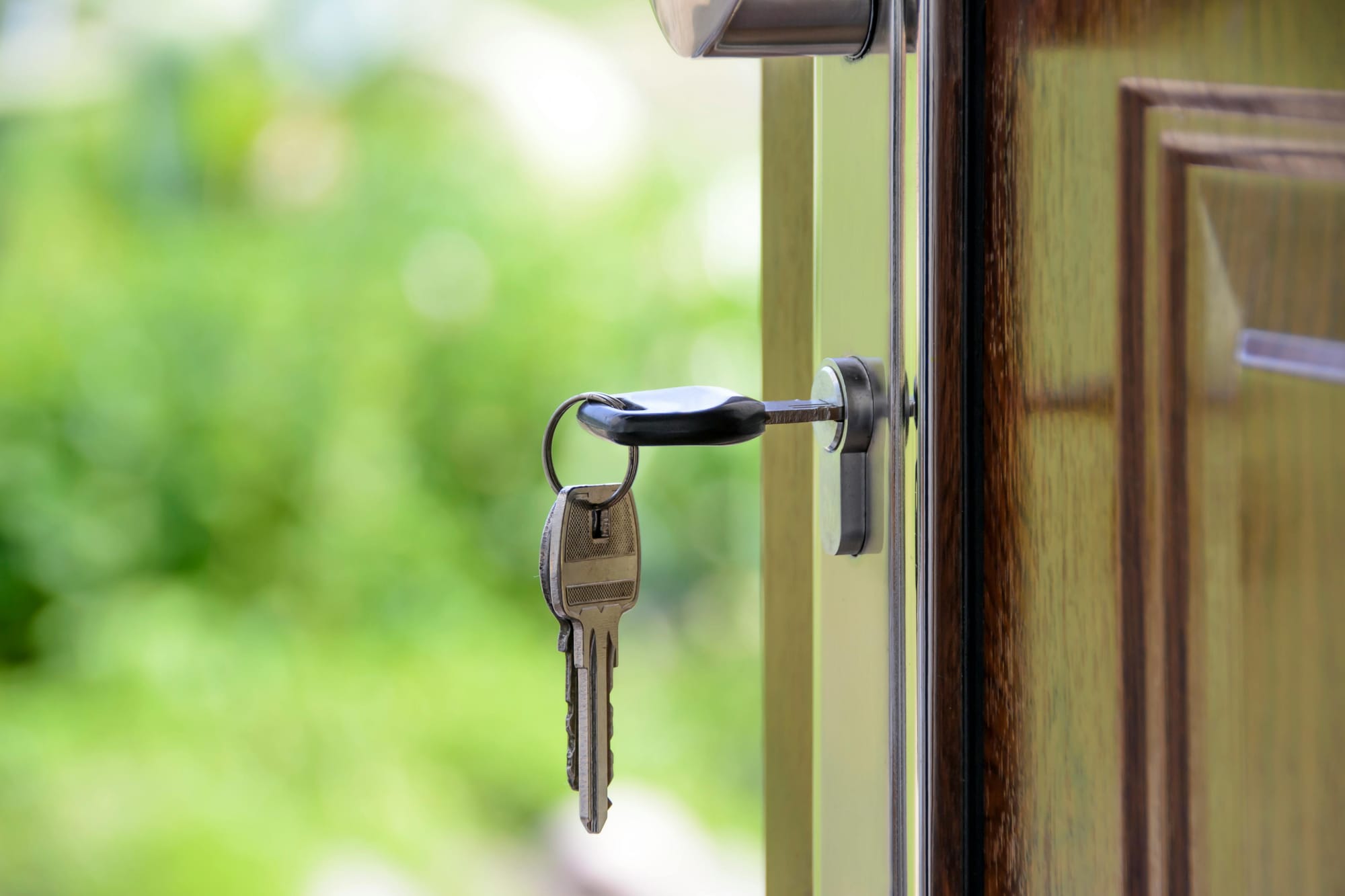Navigating the home buying process can be daunting, especially when faced with bad credit. Bad credit home loans are available. Contrary to popular belief, having less-than-perfect credit doesn't mean a home purchase loan is impossible. There are specialized loan programs tailored to accommodate borrowers with credit challenges.
These bad credit home loans offer a glimmer of hope to those who may have previously felt discouraged or disheartened by their credit history. While traditional lenders may be more hesitant to extend credit to individuals with lower credit scores, these specialized loan programs are designed to consider various factors beyond just credit. They consider a borrower's financial situation, employment history, income stability, and other relevant factors.
The existence of bad credit home loans opens opportunities for individuals who thought homeownership needed to be within reach. While these loans provide a pathway to homeownership, they may have specific limitations or requirements. These considerations should not overshadow the viability of bad credit home loans.
Exploring specialized loan programs and working with reputable lenders is crucial in that case. You can better understand your options and take proactive steps toward qualifying for a mortgage.
Get A Free Mortgage QuoteWhat’s Considered A Bad Credit Score To A Mortgage Lender?
Embarking on the journey of obtaining a mortgage can seem uphill if your credit score could be more optimal. Different lenders and loan types have different minimum credit score requirements. For conventional loans, a credit score of 620 is typically required to qualify. Government-backed loans, such as FHA loans, tend to have more lenient credit score requirements.
If your credit score falls below 500, it's essential to acknowledge that securing a mortgage may be challenging at this stage. In such cases, shifting your focus towards improving your credit score becomes crucial before pursuing homeownership. You can gradually raise your credit score over time by implementing sound financial practices, such as paying bills on time, reducing outstanding debts, and addressing any errors on your credit report. Taking steps to rebuild your credit increases your chances of qualifying for a mortgage and opens doors to more favorable terms and interest rates.
While improving your credit score may require patience and diligence, remember that this process is an investment in your financial future. By dedicating time and effort to enhance your creditworthiness, you'll expand your options for securing a mortgage and position yourself for more favorable terms and excellent financial stability in the long run. So, take the necessary steps to boost your credit score, seek guidance from credit counselors if needed, and work towards achieving your goal of homeownership with a more robust credit foundation.
Is It Possible To Buy A House With Bad Credit?
According to Experian™, a leading credit bureau, a FICO® Score below 670 is classified as "subprime." Within the subprime category, Experian™ further differentiates between fair and poor scores, with a fair score falling between 580 and 669, while a poor score represents anything below 579.
Cash becomes your greatest ally when facing lousy credit, and having more of it available for a down payment works in your favor. Your credit score may only qualify you for a limited mortgage loan amount. You can still afford the home you desire by utilizing cash to bridge the gap.
Remember that the lender you choose will also impact your options, as different lenders have varying requirements. While obtaining a mortgage with bad credit is possible, it’s essential to be prepared for higher monthly payments due to elevated interest rates.
Remember, purchasing a home with bad credit doesn't mean you're forever stuck with unfavorable loan terms. You can repair your credit over time and refinance your mortgage, enabling you to secure more favorable loan terms. By improving your creditworthiness, you can position yourself for better financial opportunities and increased stability in the future.
What Are My Options To Buy A House With Bad Credit?
Exploring various loan options for individuals with bad credit interested in purchasing a house is essential. In addition, understanding the average credit score requirements associated with each option can provide valuable insights. By examining these loan possibilities, you can make informed decisions and increase your chances of securing a mortgage despite your credit challenges.
Option 1: FHA Loans
An FHA loan, backed by the Federal Housing Administration, presents an appealing option for first-time homebuyers due to its lower qualifying requirements. Most lenders, including Rocket Mortgage, set a minimum credit score of 580 to be eligible for an FHA loan. However, a few lenders offer FHA loans with a minimum score of 500, although a down payment of 10% is typically required in such cases. It's important to note that FHA loans come with additional qualification criteria, including requiring the loan to be used for purchasing a primary residence exclusively.
Option 2: Conventional Loans
Conventional loans offered by entities like Fannie Mae and Freddie Mac can still be a viable option when it comes to homebuyers with bad credit. While these loans typically require a minimum credit score of at least 620, it's worth noting that some lenders may have higher credit score requirements. However, even with a less-than-ideal credit score, there are advantages to pursuing a conventional loan.
One significant benefit of a conventional loan for homebuyers with bad credit is the potential for more flexible terms and lower costs than other loan options. Conventional loans generally offer competitive interest rates, especially for borrowers with better credit scores within the acceptable range. This can result in more manageable monthly mortgage payments, providing some relief to buyers with less-than-perfect credit.
Additionally, conventional loans offer greater versatility regarding property types and usage. They can finance various property types, including single-family homes, condos, and even investment properties. This flexibility allows homebuyers to explore a broader range of options based on their needs and preferences.
Another advantage of conventional loans is that they typically have fewer restrictions on property conditions compared to some government-backed loan programs. This can benefit buyers interested in purchasing older homes or properties needing repairs or renovations.
While securing a conventional loan with bad credit may be a bit more challenging, it's not impossible. Working with a knowledgeable lender assisting borrowers with lower credit scores can improve your chances of qualifying for a conventional loan. They can guide you through the process, help you understand the requirements, and explore any options to enhance your creditworthiness.
Remember, even if your credit is currently less than ideal, there are steps you can take to improve your credit score over time. Making consistent, on-time payments, reducing outstanding debts, and keeping your credit utilization low are effective strategies to rebuild your credit. As your credit score improves, you may also have opportunities to refinance your conventional loan, potentially securing even more favorable terms and conditions.
Option 3: USDA Loans
For homebuyers with bad credit, USDA loans can be an excellent option. These loans, backed by the U.S. Department of Agriculture, offer several advantages tailored to individuals looking to purchase a home in qualifying rural areas.
One significant benefit of USDA loans for buyers with bad credit is securing financing with a $0 (zero) down payment. This feature makes homeownership more accessible, especially for those who may not have the means to provide a substantial upfront payment. By eliminating the requirement for a down payment, USDA loans provide greater financial flexibility and make it easier for individuals with limited savings to enter the housing market.
Regarding credit score requirements, most lenders typically expect a minimum credit score of 640 to qualify for a USDA loan. While this may still seem challenging for buyers with bad credit, it's important to note that USDA loans generally have more lenient credit score requirements compared to conventional loans. This allows individuals with lower credit scores to qualify for financing and achieve their homeownership goals.
In addition to credit score considerations, USDA loans have specific income requirements. These requirements ensure the loan is accessible to individuals with varying income levels. The income limits for USDA loans vary based on location, family size, and the number of income earners in the household. By providing opportunities for homebuyers with bad credit and modest incomes, USDA loans contribute to expanding homeownership options and revitalizing rural communities.
Furthermore, USDA loans offer competitive interest rates, which can lead to more affordable monthly mortgage payments. This affordability can provide significant relief for homebuyers with bad credit, helping them manage their financial obligations while enjoying the benefits of homeownership.
It's worth noting that USDA loans are exclusively available for properties in designated rural areas. However, these areas can encompass a broader range of locations than one might initially assume. Researching the USDA's eligibility maps or consulting with a qualified lender to determine if a specific property falls within a qualifying rural area is essential.
Ultimately, USDA loans offer a pathway to homeownership for individuals with bad credit interested in purchasing a home in rural areas. By providing accessible financing options with minimal down payment requirements and accommodating credit score criteria, USDA loans enable buyers to overcome bad credit challenges and make their homeownership dreams a reality.
Option 4: VA Loans
A VA loan can be an excellent option for home buyers with bad credit who have served in the military or are currently serving. VA loans, backed by the Department of Veterans Affairs, offer unique benefits specifically designed to support veterans, surviving spouses, and active-duty service members in their pursuit of homeownership.
One notable advantage of VA loans for individuals with bad credit is securing financing with a $0 (zero) down payment. This feature makes homeownership more accessible and eliminates the need for a significant upfront payment. Instead, qualified borrowers can finance the entire purchase price of the home, making it easier to transition into homeownership even with limited savings.
While VA loans require a one-time "funding fee," this fee can be financed as part of the loan, further reducing the upfront costs of buying a home. The funding fee helps offset the costs of the VA loan program and enables the Department of Veterans Affairs to continue supporting veterans and their families.
Credit score requirements for VA loans can vary among lenders. Although the Department of Veterans Affairs doesn’t impose a specific credit score minimum, most lenders have their own criteria. For example, Rocket Mortgage® typically requires a minimum credit score of 580 to qualify for a VA loan. While this may still challenge buyers with bad credit, VA loans generally offer more flexibility in credit score requirements than conventional loans. This allows individuals with lower credit scores to qualify for financing and achieve their homeownership goals.
It's important to note that VA loans also have property eligibility requirements, ensuring that the home meets specific safety, habitability, and value standards. These requirements help protect the borrower's interests and ensure they purchase a property that meets appropriate quality standards.
Furthermore, VA loans offer competitive interest rates, which can result in more affordable monthly mortgage payments. This affordability can alleviate some of the financial burdens often associated with bad credit, making homeownership a more manageable and sustainable endeavor.
By offering favorable terms and benefits tailored to the unique needs of veterans and active-duty service members, VA loans provide a valuable opportunity for individuals with bad credit to realize their homeownership aspirations. The $0 (zero) down payment options, flexible credit score requirements, and competitive interest rates make VA loans a compelling choice for those who’ve served in the military or are currently serving, allowing them to secure affordable financing and establish a stable foundation for their future.

How Can I Boost My Credit Score To Buy A House?
If you can’t obtain a mortgage due to bad credit, alternative options are available to help you navigate the home buying process. While traditional bad credit mortgages may be challenging to secure, exploring these alternatives can still provide homeownership opportunities:
Improve Your Credit: One option is improving your credit score before pursuing a mortgage. You can gradually enhance your creditworthiness by implementing positive financial habits, such as making timely payments, reducing debt, and resolving any outstanding issues on your credit report. Taking the time to rebuild your credit can increase your chances of qualifying for a mortgage in the future.
Explore Rent-to-Own Agreements: Rent-to-own agreements can benefit individuals with bad credit. With this arrangement, you rent a property with the option to buy it later. A portion of your monthly rent payments can be applied toward the future purchase price, allowing you to build equity while improving your credit. Rent-to-own agreements provide a pathway to homeownership while giving you time to enhance your credit standing.
Consider Co-Borrowers or Co-Signers: Another option is to seek the assistance of a co-borrower or co-signer with better credit. A co-borrower is a joint applicant who shares the responsibility of the loan and contributes to the qualification process. On the other hand, a co-signer agrees to be responsible for the loan if the primary borrower defaults. A co-borrower or co-signer with more substantial credit can increase your chances of obtaining a mortgage.
Look into Government Programs: Various government programs aim to assist individuals with low credit scores achieve homeownership. For example, the Federal Housing Administration (FHA) offers FHA loans with more lenient credit requirements than conventional mortgages. Additionally, state or local housing agencies may provide special programs or grants to support homebuyers with low credit scores.
Seek Alternative Financing: Exploring alternative financing options can benefit individuals with bad credit. Some private lenders or specialized mortgage companies offer loans tailored for borrowers with lower credit scores. Although these loans may come with higher interest rates and stricter terms, they can serve as a stepping stone toward homeownership while allowing you to rebuild your credit over time.
Increase Your Available Credit and Manage Inquiries: Improving your credit score takes time and effort, but you can use strategies to expedite the process, especially when preparing to buy a house and apply for a mortgage. One practical approach is to focus on increasing your available credit. By paying down balances on existing accounts or requesting credit limit increases, you can decrease your credit utilization ratio, which is a significant factor in determining your credit score. It's important to note that most credit card companies allow you to request credit limit increases without triggering a hard inquiry on your credit report, minimizing any potential negative impact on your score. Remember, a higher credit score enhances your chances of securing favorable mortgage terms.
Add New Accounts Strategically: Adding new accounts to your credit profile can also help improve your credit score, mainly when done strategically. By opening multiple accounts simultaneously, you increase your available credit and enhance your credit mix. This approach is especially advantageous when all the inquiries and new accounts are established within a specific time frame. Consequently, these inquiries will have a shorter impact on your credit score, and the new accounts will age together, contributing positively to your credit history. Additionally, adding new accounts allows you to build a more robust payment history, which typically reflects on your credit report within 30 to 45 days.
Negotiate Payment for Deletions: Collections on your credit report can harm your creditworthiness, as they signal unpaid debts to lenders. While paying off a collection is a step in the right direction, it may remain on your report as a "Paid" status. However, there is an opportunity to achieve an even better outcome by negotiating with the collection agency. You can request the complete removal of the collection from your credit report in exchange for payment. Before making any payment, ensure you have a written agreement stating that the collection will be deleted from your credit report upon payment. By successfully removing the collection, your credit score will improve, giving lenders one less reason to decline your mortgage application.
Minimize Hard Credit Inquiries: Maintaining a good credit score requires careful consideration of when and how you apply for new credit. Hard inquiries, generated when you apply for loans or credit cards, can harm your credit score if there are fewer within a short period. To mitigate this risk, it's essential to understand whether a credit pull is classified as a hard or soft inquiry. When preparing to apply for a mortgage, avoiding engaging in financial transactions that require hard inquiries is advisable. By avoiding such activities close to your mortgage application, you minimize the potential negative impact on your credit score, thereby increasing your chances of securing favorable mortgage terms.
Remember, it's crucial to thoroughly research and understand the terms and conditions of any alternative options you consider. Consulting with a reputable mortgage professional or housing counselor can provide valuable guidance and help you navigate the complexities of these alternatives. While obtaining a mortgage with bad credit may present challenges, exploring these options can open doors to homeownership and pave the way for a brighter financial future.
Don’t Worry! Getting A Home Loan With Bad Credit Is Possible!

Despite having a bad credit score, achieving the dream of homeownership is still within reach. While it may require extra effort and thorough research, there are financing options available that can accommodate individuals with lower credit scores.
By being patient and conducting extensive research, you can discover lenders who specialize in working with borrowers with bad credit. These lenders understand the unique circumstances of individuals with lower credit scores and are more willing to provide mortgage opportunities. Additionally, working with a knowledgeable mortgage professional can be invaluable in navigating the complexities of obtaining a home loan with bad credit.
While interest rates for individuals with bad credit may be higher than those with excellent credit, it's crucial to weigh the long-term benefits of homeownership against the immediate financial considerations. Owning a home can offer stability, potential equity growth, and the ability to customize your living space to suit your needs.
To improve your chances of securing a favorable mortgage, it's essential to demonstrate responsible financial habits. This includes managing existing debts, paying bills on time, and working towards improving your credit score. Addressing and resolving any outstanding collections or delinquent accounts can also contribute to a more positive credit profile.
Obtaining a home mortgage with bad credit is a manageable challenge. With patience, diligent research, and a proactive approach to improving your creditworthiness, you can find lenders and financing options that cater to individuals with lower credit scores. By taking the necessary steps and seeking professional guidance, you can realize your dream of homeownership, regardless of your credit history.
Get A Free Mortgage Quote






